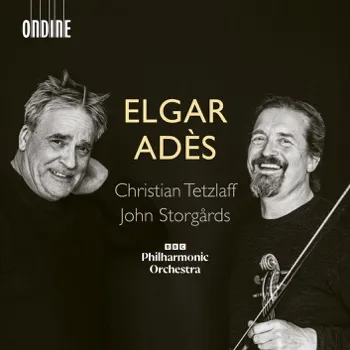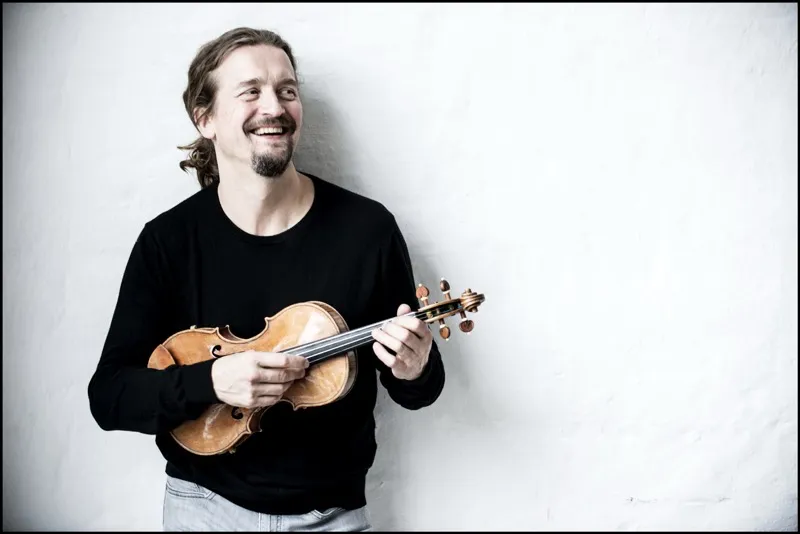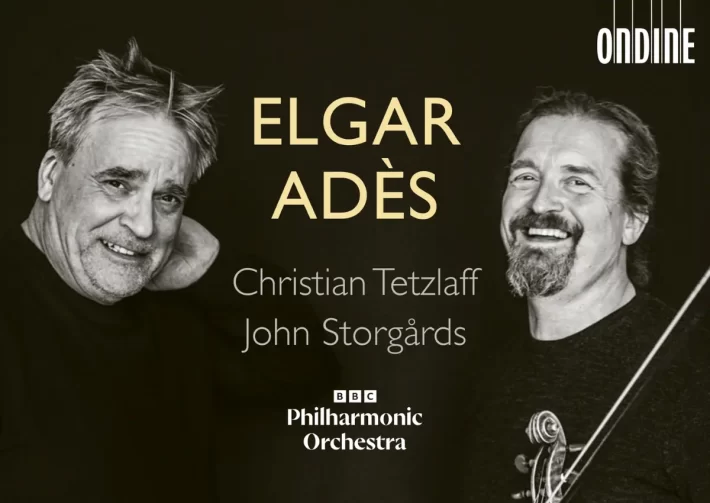The liner notes for this album consist of a substantial interview with Christian Tetzlaff in which he references two early recordings of Elgar’s Violin Concerto, played by Albert Sammons (1929) and Jascha Heifetz (1949). Tetzlaff contends he is honoring what he sees in the score, and I sense he believes the Sammons and Heifetz recordings are closer to what Elgar intended. Yet the composer’s famous recording, made with young Yehudi Menuhin, lasts just under 50 minutes. Elgar’s recordings of his own works tend to be faster than what we hear today. Yet in the concerto Elgar gives Menuhin the time he needs for maximum expressiveness, an approach that certainly fits the composer’s description of the work: “It’s good! Awfully emotional! Too emotional, but I love it.” Tetzlaff’s reading lasts 43 minutes.

And then there is the oft discussed quotation in the score: “Aqui esta encerrada el alma de…..” (“Herein is enshrined the soul of …..”) which most scholars believe refers to Alice Stuart-Wortley, for whom Elgar developed romantic feelings. My initial reaction was that Tetzlaff’s faster tempos failed to capture the music’s soul, yet the more I listened, the more convincing his view became.
Of course, he easily dispatches every technical hurdle, offering brilliant technical dexterity and full-throated lyricism. A favorite moment in Frang’s recording, 6’19” in the opening movement, where she whittles her sound down to a thread, finding a wistfulness that surely expresses Elgar’s tender feelings for young Alice. Tetzlaff’s (5’35”) sound is fuller but also achingly tender. If this music indeed conveys a love never acted on, the performances listed above express the desire of an older Elgar, whereas Tetzlaff’s more viral playing is Elgar in the prime of life.
That idea is even more pronounced in the Andante: at 11’05,” its sweeping momentum and drive is a stark contrast to Little and Kennedy’s far slower approach. (Interestingly, Frang also plays this movement quicker, taking 11’47”.) The ‘Allegro Molto’ stresses ‘Molto,’ Tetzlaff on dazzling form, his brawny athleticism wonderfully matched by the BBC Philharmonic and Storgårds. He and Tetzlaff are in complete interpretative agreement throughout. The long cadenza is brilliant, its quixotic orchestral accompaniment carefully voiced. This feels like the true emotional climax of the concerto (which is what Elgar intends) and Tetzlaff captures every mercurial shift of mood. While this does not displace my allegiance to Frang or the other recordings mentioned above, it is a different but convincing and absorbing realization of the score.

Christian Tetzlaff (image: © Giorgia Bertazzi)
Ades’s violin concerto, “Concentric Paths” has proven to be quite popular on records since its premiere by violinist Anthony Marwood on September 4, 2005 (the made the first recording shortly thereafter). Augustin Hadelich was next (Avie), followed by Pekka Kuusisto (DG), and Peter Herresthal (BIS). Pentatone will release its recording with Leila Josefowicz next month.
Lasting around 20 minutes, the concerto is in three connected movements (titled Rings, Paths, and Rounds). The score embraces a high degree of dissonance though one can usually track a tonal center, the colorful orchestration constantly fascinating.
The slow middle movement – longer than the faster outer movements combined, is the emotional heart of the work. There is a fascinating duet between solo violin and lower brass (track. 5, 2’20”), though the movement’s central focus is the violent clashing of two ‘cycles’ of melody as they both search for some resolution.
The final movement is more playful and easier to appreciate. This is an excellent performance, enthusiastic, and technically immaculate. After several hearings, I am reticent to say I understand the work; there is an almost incessant restlessness to the writing that left me exhausted by the end. Yet this is certainly an impressive release, the thought-provoking Elgar wedded to a contemporary concerto worth the time and effort to know.
Recommended Comparisons
Frang | Sammons | Heifetz | Kennedy

Album Details |
|
|---|---|
| Album name | Elgar, Adès, Violin Concertos |
| Label | Ondine |
| Catalogue No. | ODE 1480-2 |
| Artists | BBC Philharmonic Orchestra, John Storgårds, conductor |



















